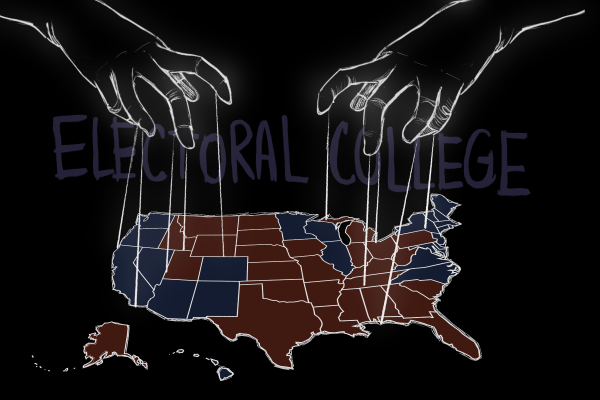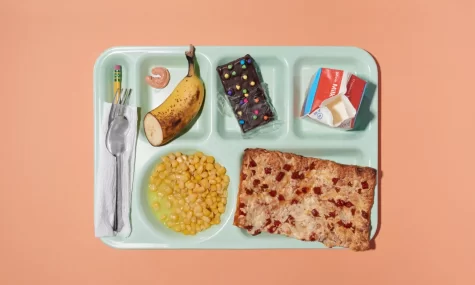You Cannot Quantify Passion
Disclaimer: I have nothing against college admission officers, the National Honor Society, or the International Baccalaureate Organization. I am actually a member of the National Honor Society and IB. Also, I understand that the faculty leaders of NHS and IB must follow certain guidelines put in place by those organizations. However, I think it is important for students and teachers alike to recognize the flaws in this shortsighted system in which the character, leadership, and service of a person is quantified by the activities in which they take part.
As senior year approaches for juniors, many are reflecting back on the merits and extra-curricular activities they have accumulated over the years, which they will proudly describe in one to two sentences this coming fall on the Common Application. Some people may be left kicking themselves for not joining just one more service club or for opting out of applying for president of at least one club. However, I think this is ridiculous. Essentially, people are forcing themselves to be interested in things they are not interested in naturally.
College admissions officers are the most obvious culprits for creating the paradigm that the more the activities and leadership roles, the better. “We want to see what you’re passionate about. We’re looking for well-rounded students,” admissions officers explain to a room of anxious teenagers. So, it is now in just about every high school student’s head that even if they do not like violin or softball or the Helping Hands Club (does that exist?) they should suck it up and join it anyway – because that is what well-rounded, passionate students do. But is showing up to a few meetings and being on a listserv really passion? Not really. You cannot truly control what you are passionate about. Maybe you absolutely love violin, but you never really got the knack of softball and you just do not like packaging food for community service clubs. There is nothing wrong with that. But college admissions officers want you to be well rounded, so a single passion in the violin does not cut it. They do not want you to just be passionate about the violin, they want you to be a dedicated athlete who also gives back to his or her community. So, a student may be forced to put violin on the backburner so they can make time for a sport they do not truly like and a community service project his or her heart is not in.
By enforcing that more activities equals more passion equals a better chance of getting admitted, college admissions officers are actually harming students’ drive and passion. The idea that the broader scope of interests the better, also causes students to take part in extra curricular activities to fulfill the image of the well-rounded student, rather than because actually they enjoy it.
Of course, college admissions officers are not the only ones responsible for students suddenly becoming athletic-artistic-philanthropists. Organizations like the National Honor Society the International Baccalaureate Organization choose to quantify your passion through point systems. For any junior who is either in IB or applied to the National Honor Society, you recently found yourself tallying the number of points (or hours, in IB students’ case) your extra curricular activities have earned you. In the application for the National Honor Society, you must list the activities you take part in and hope they tally up to sixty points. Five points are rewarded for clubs such as Student Council, Mock Trial, the Newspaper, etc., but, what if you dedicate an hour a night looking for service projects and each Saturday morning to a buildOn community service? Too bad; buildOn is a club so it is rewarded five points, no matter how much time or energy you expend on it. Meanwhile, ten points are rewarded for the “clearly superior” activities of Science Olympiad, athletics, theater, debate and Academic Decathlon.
You cannot quantify passion, interest, or service. You cannot really quantify how much energy and heart someone puts into an activity. This point system is suggesting that more time and energy are put into certain activities than others. Yet, this point system is still in place. So, students are signing up for activities they do not particularly care about, spreading themselves too thin, all in the name of acquiring the magic sixty points that will certify that they are leaders of good character who are dedicated to service.
But does one need to be involved in certain activities to acquire this image of a philanthropic leader with good character? Well, according to the National Honor Society, yes. But in reality, no; if your points do not tally up to sixty because you are not in enough of the magic ten point activities, you still are a good person. For example, what if a student has to go home right after school everyday to babysit his or her younger siblings and, thus, does not have the time to join any of the magic 10 point activities?
So, despite NHS’s best efforts, you cannot quantify someone’s character or his or her dedication to service and leadership. These three things come in many different forms and vary to many different degrees. You cannot say someone is less of a leader because he or she is not president of this and that, since leadership should not have to be positional. Character and service are not limited to the magic number of points you acquire from your community service clubs. Character and service can be spending three hours a night tutoring your little brother in math or helping the lonely elderly women next door with her garden. How many points would that get someone? The answer is it does not matter; or rather it should not matter.
It should not matter how many points you obtain for the things that you do out of the goodness of your heart because, if you are really doing something because you are passionate about it and you believe in the cause, it would not matter what it earns you. It should be rewarding enough as it is.











